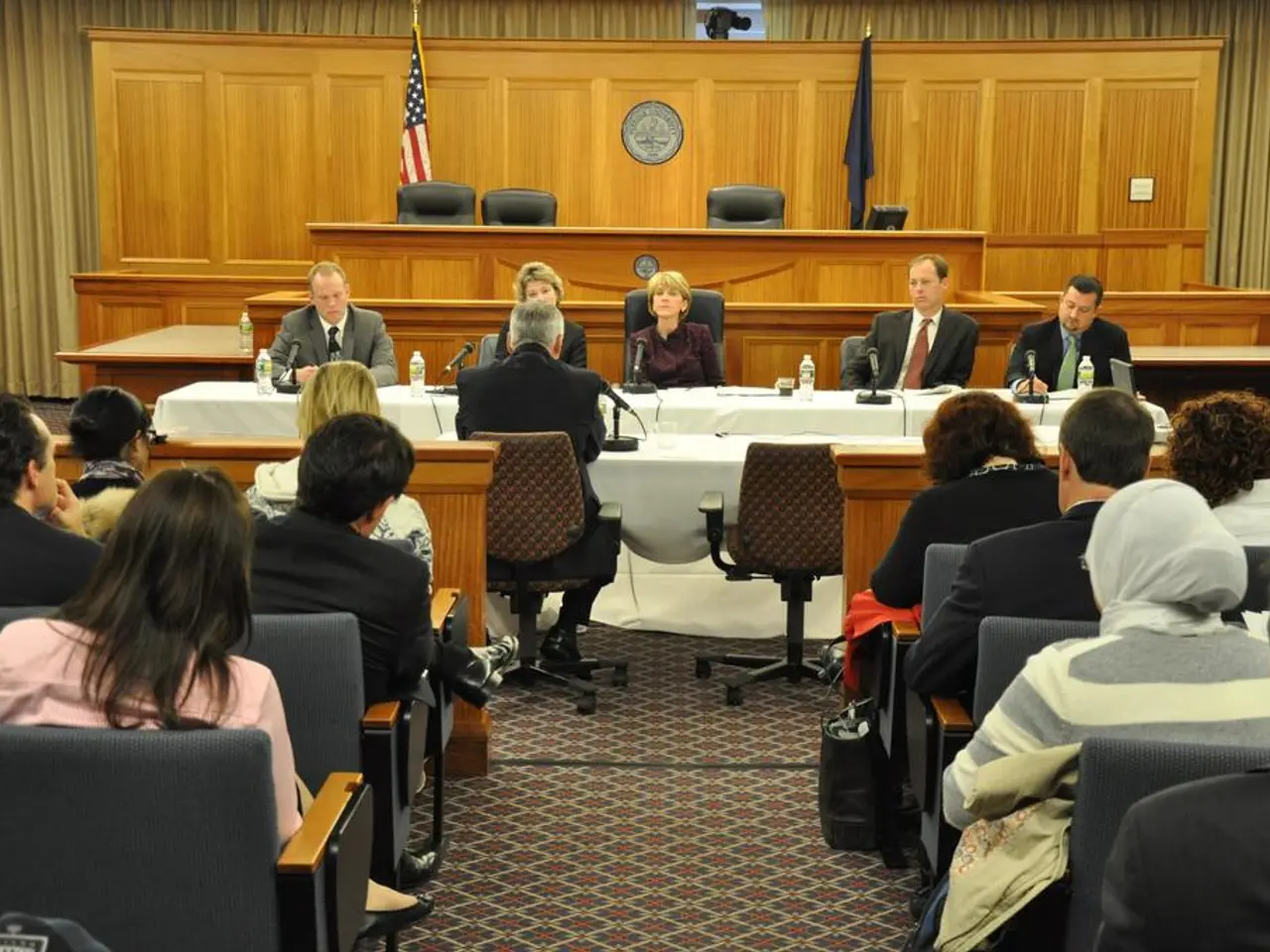Parliamentary CDU Member Proposes Coronavirus Investigative Committee - CDU Politician Proposes Establishment of a Coronavirus Inquiry Panel
In recent weeks, the nomination of Frauke Brosius-Gersdorf to the Federal Constitutional Court has been met with opposition, primarily from Saskia Ludwig and the CDU/CSU parliamentary group. The arguments raised against her nomination centre around concerns about the court's independence and neutrality.
One of the main points of contention is a plagiarism suspicion concerning parts of Brosius-Gersdorf's academic work. This allegation, raised just before the parliamentary vote, has cast doubts on her integrity and qualifications.
Political and ideological concerns also play a significant role in the opposition. Critics, including Ludwig, argue that Brosius-Gersdorf's liberal or progressive views, particularly on polarized issues such as abortion and her support for mandatory COVID-19 vaccinations, could potentially make her judgment politically biased rather than neutral.
The CDU/CSU fears that these controversies could undermine the independence and impartiality expected from a Federal Constitutional Court judge. They worry that her ideological leanings and the plagiarism allegations might damage the court’s reputation and the perception of its neutrality.
The dispute over Brosius-Gersdorf’s nomination reflects deeper fissures within the governing coalition, with CDU/CSU threatening to abstain from the vote if the SPD did not withdraw her nomination. This political conflict itself raises concerns about maintaining the judiciary’s independence from partisan disputes.
Furthermore, the topic of a COVID-19 vaccination obligation is a significant factor in the opposition. Brosius-Gersdorf's support for such a measure has been a point of contention, leading to concerns about her impartiality in future court decisions related to this issue.
In a related development, a "Corona dinner" with constitutional judges at the Chancellery in June 2021 has raised questions about potential influence on court decisions regarding the federal government's COVID-19 policy.
Frau Brosius-Gersdorf has offered to appear before the Union, but her legal motives and professional explanations for implementing a general corona vaccination obligation in Germany would be more relevant in a necessary corona investigative committee of the German Bundestag.
The Federal Chancellor has clarified that the members of the Federal Constitutional Court are exclusively subject to their conscience and make their decisions independently of government action. However, the ongoing controversy highlights the importance of maintaining the court's independence and neutrality, critical for public trust in Germany's highest legal institution.
[1] Constitutional Law Experts: Brosius-Gersdorf's Appointment Could Damage Federal Constitutional Court's Reputation, Der Spiegel, 12th May 2022. [2] CDU/CSU Threatens to Abstain from Vote on Brosius-Gersdorf's Appointment, Die Welt, 15th May 2022. [3] Brosius-Gersdorf's Appointment: The Inside Story, Frankfurter Allgemeine Zeitung, 17th May 2022.
The ongoing controversy over Brosius-Gersdorf's nomination to the Federal Constitutional Court is a matter of policy-and-legislation, politics, and general-news, considering the implications for the court's independence and neutrality. The allegation of plagiarism in her academic work and concerns about her ideological leanings, particularly on polarized issues such as abortion and COVID-19 vaccinations, have been raised as potential causes for political bias. These concerns have led to debates on maintaining the judiciary’s independence from partisan disputes and the potential impact on the court’s reputation (Der Spiegel, Die Welt, Frankfurter Allgemeine Zeitung).





